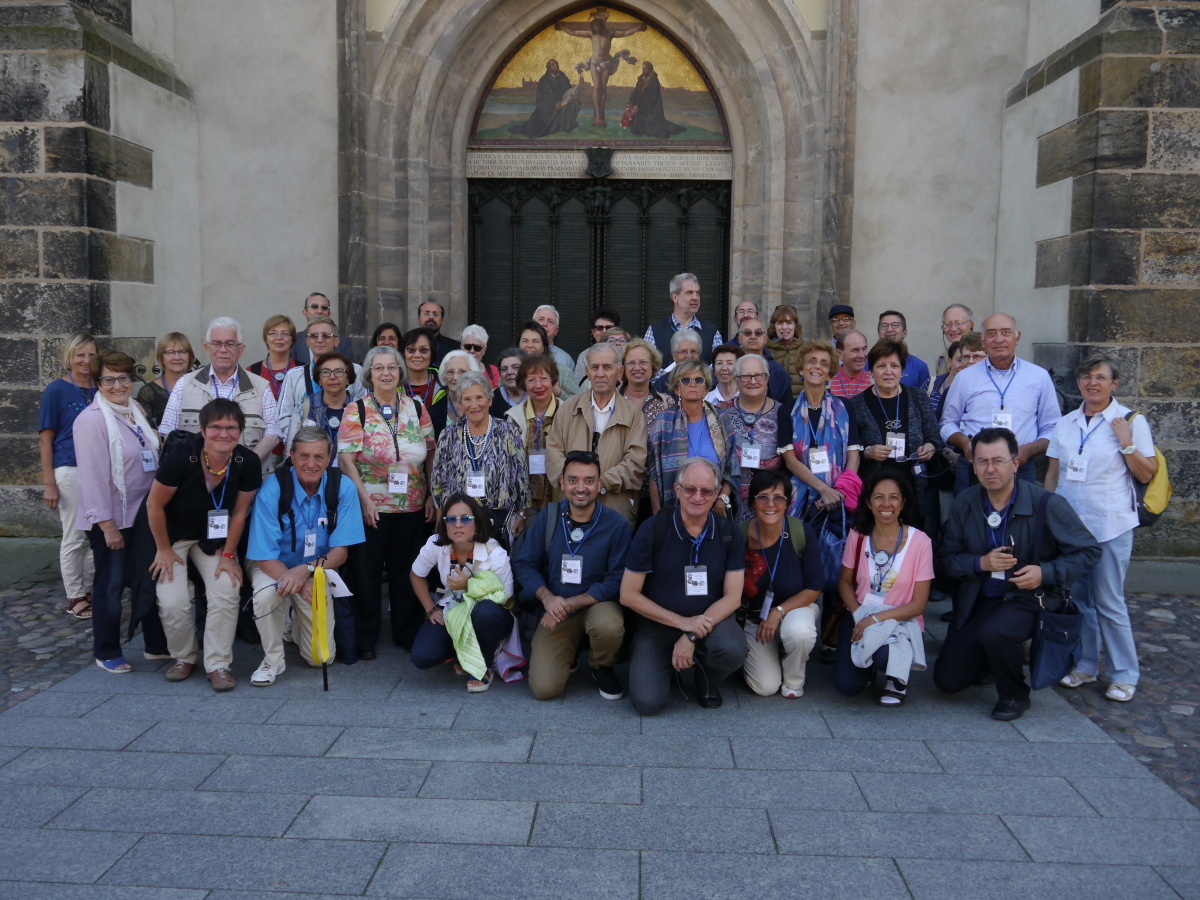 Throughout the year numerous encounters, conferences, ecumenical days and moments of common prayer in a variety of contexts and settings were held, almost always at local churches. They were opportunities to delve into the treasure of the different Christian traditions not only Catholic and Lutheran in a genuine family atmosphere. In May, during the Ecumenical Week called “Walking Together” and held at the Mariapolis Centre in Castel Gandolfo, Italy, Maria Voce spoke to 700 people from 42 countries and 69 different churches, identifying in the “five imperatives” of the Walking Together document the basis for any kind of fruitful ecumenical effort. Several presentations were made, including that of a new biography Lutero, L’uomo della Rivoluzione [Luther, the Man of the Revolution], written by Mario Dal Bello from Città Nuova. In Italy, the Focolare community held two evening programmes at Torino and Bra, with presentations by Hubertus Blaumeiser, a Catholic expert on Luther, and by Waldensian, Dr Paolo Ricca.
Throughout the year numerous encounters, conferences, ecumenical days and moments of common prayer in a variety of contexts and settings were held, almost always at local churches. They were opportunities to delve into the treasure of the different Christian traditions not only Catholic and Lutheran in a genuine family atmosphere. In May, during the Ecumenical Week called “Walking Together” and held at the Mariapolis Centre in Castel Gandolfo, Italy, Maria Voce spoke to 700 people from 42 countries and 69 different churches, identifying in the “five imperatives” of the Walking Together document the basis for any kind of fruitful ecumenical effort. Several presentations were made, including that of a new biography Lutero, L’uomo della Rivoluzione [Luther, the Man of the Revolution], written by Mario Dal Bello from Città Nuova. In Italy, the Focolare community held two evening programmes at Torino and Bra, with presentations by Hubertus Blaumeiser, a Catholic expert on Luther, and by Waldensian, Dr Paolo Ricca. 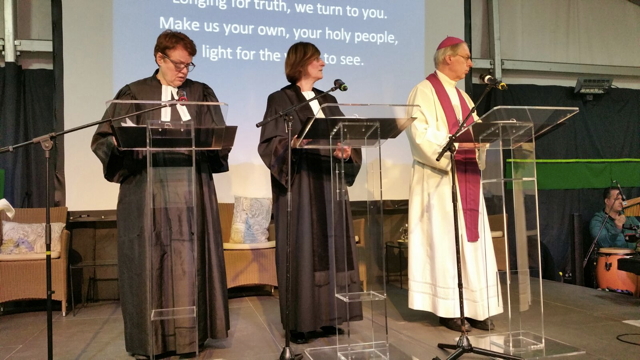 In Holland, leaders of the main Christian Churches began the Unity On the March Day. In Brazil, following a symposium promoted by the national ecumenical commission on Luther’s Comments on the Magnificat, there was an evening held at Mariapolis Ginetta which was followed via live streaming by many young people in 650 listening locations. In Venezuela several encounters and moments of prayer were held by the focolare communities. At Mariapolis Fiore in Poland the day event held in September for the 500th anniversary was the opportunity for a particular kind of witness: the fifteen year ecumenical pilgrimage shared by the people of Poland and Germany. In Ireland, on the initiative of the Focolare Movement and the Lutheran Church, studies were held, conference and an Ecumenical Bible week, which also involved the Anglican and Presbyterian Churches. There were also journeys to significant landmarks of the Reformation and of the life of Martin Luther. In the month of August, there was a seminar on Luther in Zwochau with fifty Catholics, Lutherans Waldensians and one Coptic-Orthodox, from several European countries, Egypt and Argentina. Included in the programme was a visit to Wartburg Castle and the city of Wittenberg, Effort where the young Luther entered the Augustinian Order, and Lipsia where his legacy met up with the musical genius of J. S. Bach. One Italian group visited another significant landmark, the city of Augusta, to get to know the Ecumenical Mariapolis of Ottmaring. A similar pilgrimage took place in June, promoted by the Ecumenical Commission of Hong Kong and accompanied by several focolarini. In Sweden, the Focolare community solemnly underwrote “the imperatives” and handed their signatures over to the Lutheran Archbishop. The Gen Verde performing arts group, through its concert concert “On the Other Side “, contributed to the commemoration in Stadthagen (Germany). These were but a few steps on a road that is still very long, which are added to many others that set the direction of the common search for truth and salvation, with an open gaze focused on all the Churches. It’s a new page in history.
In Holland, leaders of the main Christian Churches began the Unity On the March Day. In Brazil, following a symposium promoted by the national ecumenical commission on Luther’s Comments on the Magnificat, there was an evening held at Mariapolis Ginetta which was followed via live streaming by many young people in 650 listening locations. In Venezuela several encounters and moments of prayer were held by the focolare communities. At Mariapolis Fiore in Poland the day event held in September for the 500th anniversary was the opportunity for a particular kind of witness: the fifteen year ecumenical pilgrimage shared by the people of Poland and Germany. In Ireland, on the initiative of the Focolare Movement and the Lutheran Church, studies were held, conference and an Ecumenical Bible week, which also involved the Anglican and Presbyterian Churches. There were also journeys to significant landmarks of the Reformation and of the life of Martin Luther. In the month of August, there was a seminar on Luther in Zwochau with fifty Catholics, Lutherans Waldensians and one Coptic-Orthodox, from several European countries, Egypt and Argentina. Included in the programme was a visit to Wartburg Castle and the city of Wittenberg, Effort where the young Luther entered the Augustinian Order, and Lipsia where his legacy met up with the musical genius of J. S. Bach. One Italian group visited another significant landmark, the city of Augusta, to get to know the Ecumenical Mariapolis of Ottmaring. A similar pilgrimage took place in June, promoted by the Ecumenical Commission of Hong Kong and accompanied by several focolarini. In Sweden, the Focolare community solemnly underwrote “the imperatives” and handed their signatures over to the Lutheran Archbishop. The Gen Verde performing arts group, through its concert concert “On the Other Side “, contributed to the commemoration in Stadthagen (Germany). These were but a few steps on a road that is still very long, which are added to many others that set the direction of the common search for truth and salvation, with an open gaze focused on all the Churches. It’s a new page in history.
Listen to interview given to the BBC Radio (Ulster) by Swiss theologian Fr Hubertus Blaumeiser during the Sunday Sequence program on The Reformation (30/10/2017). Fr Blaumeiser is recognised as one of the leading authorities on Luther. http://www.bbc.co.uk/programmes/p05lc3dn

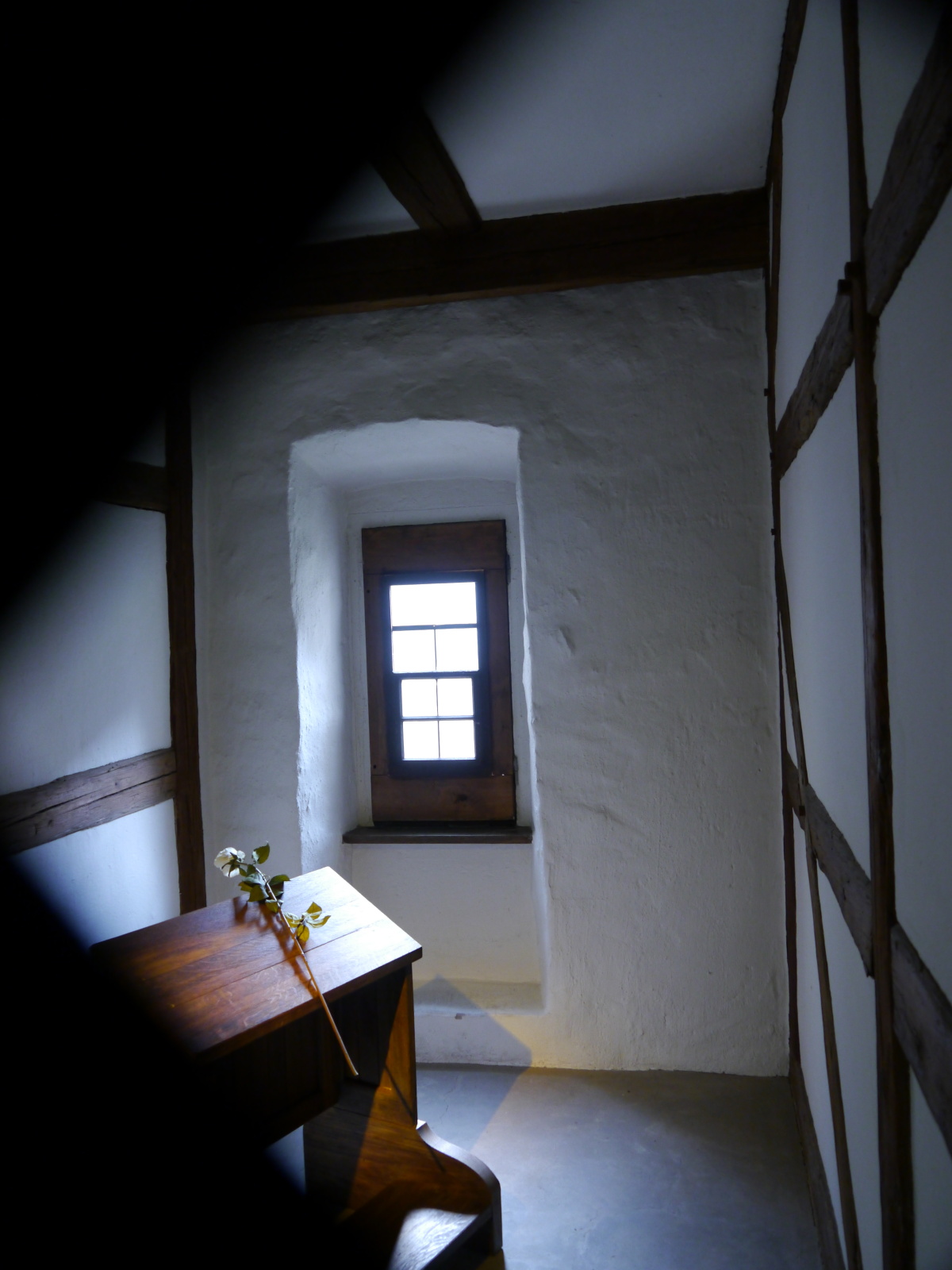
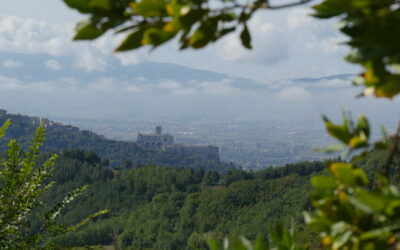

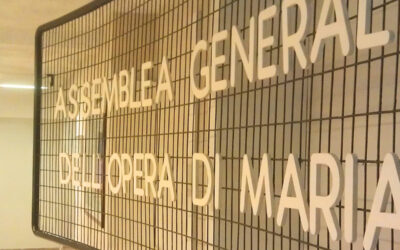
0 Comments